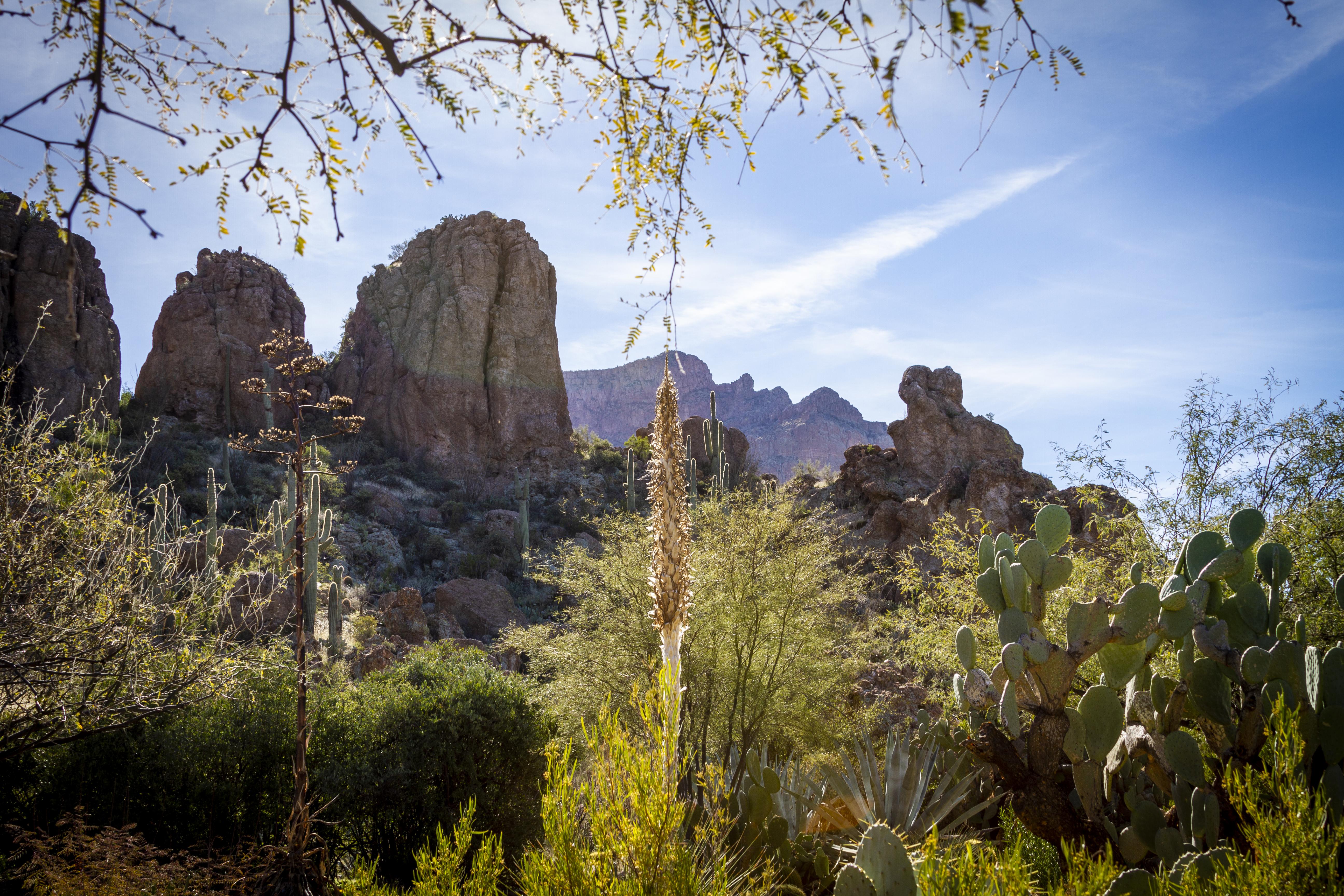A Superior state of mind along US 60
A Superior state of mind along US 60

US 60 is nearly 370 miles long, stretching from the New Mexico state lane to Quartzsite, just 30 miles shy of hitting California. Along the way it's dotted with plenty of interesting locales.
But there is one place that stands above them all, at least in its name: Superior.
Tucked away in a peaceful spot along Queen Creek in the rough terrain at the southern end of the Superstition Mountains, there's a lot of history here waiting to be discovered on your next road trip.
Dominating the landscape is the recognizable Apache Leap to the southeast. According to Native History Magazine, the name comes from an early 1870’s battle between the tribe and the U.S. Cavalry. Attacked and driven to the edge of the steep cliff by U.S. troops, the Apache brethren decided to leap to their deaths rather than surrender. Apache Leap looms over Superior as a reminder of the area’s bloody history.
Like many of Arizona’s once-boom towns, Superior owes its existence to a nearby mine. Silver was found in the area in 1875 and the Silver King Mine, from which it was plucked, remained in operation until 1920. The Silver Queen was the King’s sister mine, though it had a relatively shorter life, shutting down in 1907.
Precious metal royalty aside, the undoubted sultan of Superior was the Magma Mine. Founded by William Boyce Thompson (namesake of the nearby arboretum), Magma Mine opened in 1910 and incorporated the shuttered Silver Queen in its operations. Magma shut down in 1982 but had a short resurgence from 1990 to 1996. All in all, nearly 1.3 million tons of copper and over 34 million ounces of silver (along with a decent amount of gold) were recovered from the mine.
Mining continues to this day, with crews exploring deep within the former Magma Mine for any untapped copper deposits.
The automobile road that would connect Superior with the outside world was established in 1922, part of Arizona’s “Million Dollar Highway.” After a national numbering system was adopted in the mid-1920s, this eventually became US 60. Just four years later, the Claypool Tunnel was erected east of Superior to better aide travelers who were on their way to (or from!) Miami. While extremely photogenic, the Claypool Tunnel was replaced by the much more efficient Queen Creek Tunnel in 1952. The tunnel’s dedication ceremony served as the crowning moment of the Arizona Highway Department’s (as we were known at the time) 15-year project to improve US 60 between Superior and Miami.
Those passing through can still spot the original bridge and highway down in the canyon just east of town. That winding road and simple concrete bridge were in use for nearly three decades before widening work and other improvements demanded moving the highway to a higher elevation.
Today, a trip to Superior consists of taking in their downtown area, just a quick turn off US 60 onto Magma Avenue, and basking in the locked-in-time appeal of its buildings, especially the McPherson Magma Hotel. Built in 1912, the hotel has been used for many purposes throughout its existence and was added to the National Register of Historic Places in 1994. After a collapse in 2006, the Magma Hotel recently reopened.
The World’s Smallest Museum offers a plethora of random knick-knacks all tucked within a space just big enough to be generously called a hallway. Nearby, you can also visit the gravesite of Wild West lawman Wyatt Earp’s first wife (by common law), Mattie, who died tragically of an opium overdose in 1888.
Another stop near Superior on US 60 is the aforementioned Boyce Thompson Arboretum. Founded by its eponym in 1924, the arboretum is the oldest and largest in Arizona featuring a plethora of desert plants and the wild animals they attract. It officially opened to the public in 1929 and continues to attract more than 75,000 visitors a year. That's just one view of it that you can see in the photo above.
So, if you are looking for a quick day trip or maybe even a weekend getaway, hop onto to US 60 to visit this historic spot that certainly lives up to its name.
Can't get enough US 60? Take a virtual road trip and check out some more alluring Arizona scenery.
